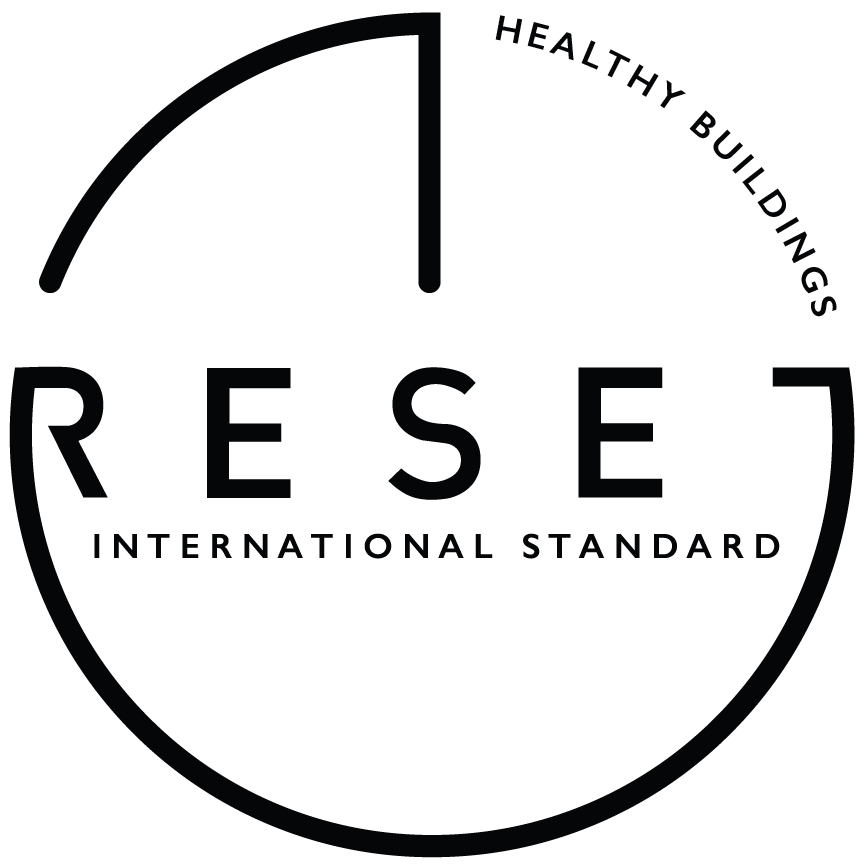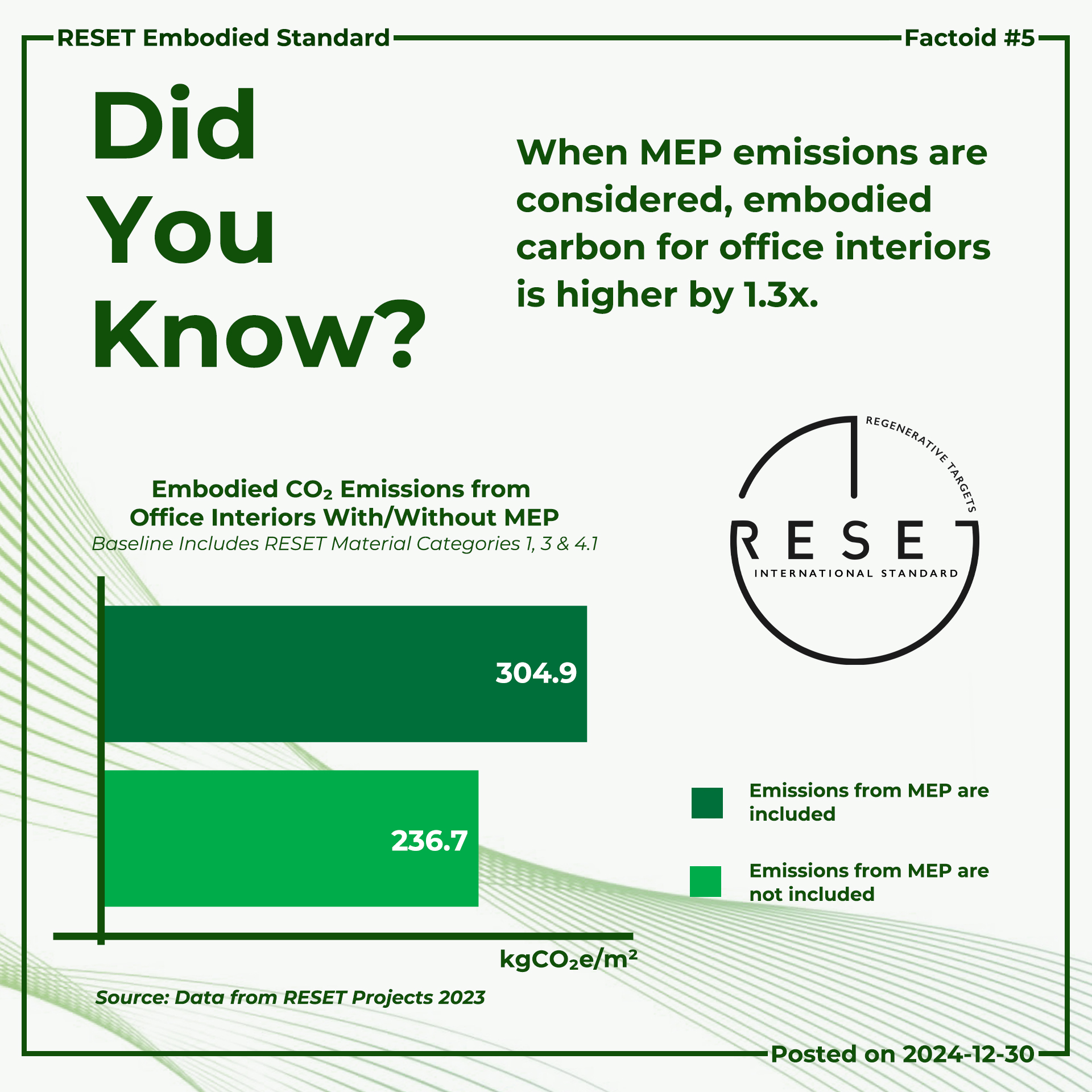Factoid #5 - MEP Impact on Embodied Carbon for Office Interiors

Calculating MEP emissions is challenging due to the lack of available data on mechanical, electrical, and plumbing products, which are made from materials with high carbon footprints. This has left the industry largely unaware of MEP’s impact on embodied carbon emissions throughout the lifecycle of a building.
RESET’s 2023 project data shows that the embodied carbon baseline for office interiors is 236.7 kgCO2e/m² without MEP systems. Including MEP increases this number to 304.9 kgCO2e/m²—a 1.3x rise.
The RESET Embodied Standard provides methods for measuring and reporting MEP’s carbon footprints, filling data gaps, and enabling comprehensive environmental reporting. It helps clients make informed decisions for effective carbon management throughout a building’s lifecycle.
In Factoid #4, we noted that when interior fit-outs are considered, it takes 23 years for operational carbon to catch up with the embodied carbon. The next factoid will show how the data changes when MEP is included. Follow us on LinkedIn or subscribe at https://reset.build/subscribe for more upcoming Factoids.
For RESET projects with MEP assessments, please click here.
About RESET®
RESET® is an international performance data standard and certification program, created and managed by GIGA, that offers a pathway towards decarbonization by developing actionable and measurable strategies towards regenerative sustainability and health for the built environment. RESET takes a quantitative and holistic approach to embodied and operational data by combining the development of databases, data collection, continuous monitoring, and cloud software to automate reporting and analytics, which then generates opportunities for iterative improvement and optimizations.
The RESET Embodied Standards include Embodied Carbon, Circularity, and Health, while the RESET Operational Standards include Air, Energy, Water, and Waste.
For more information about RESET, please visit: https://www.reset.build/

